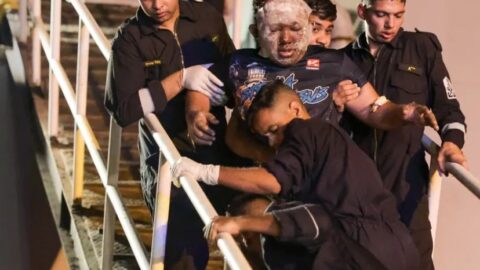Now that the door has opened to maritime security, it cannot be closed but whether regulation will make armed guards an institutional part of shipping is open to debate, say industry experts.
Speaking at an industry roundtable chaired by Lloyd’s List and held by Protection Vessels International, experts discussed the findings of this newspaper’s recent survey on piracy and private maritime security and considered what the future held for the fledgling industry.
The survey found that 38% of respondents had used armed guards; many of those who participated in the survey may not operate in a piracy high-risk area and therefore considered the issue only hypothetically.
Catlin head of asset protection Peter Dobbs said that 14,500 declared armed transits had taken place but that the figure was probably under-reported, with the real total likely to be 16,500.
In all, there are around 55,000 vessels transiting the Indian Ocean and of these, around 35,000 are insurable, so it is around 50%, he estimated.
UK Chamber of Shipping head of security and commercial Gavin Simmonds acknowledged the debate about armed guards becoming an institution, concluding that the chamber saw them as a complementary part of the wider picture.
“However, in the meantime the new ISO [standard] will institutionalise, regulate and legalise the character of armed guards,” he said.
International Chamber of Shipping secretary-general Peter Hinchcliffe said he took issue with the term “institutionalising”.
“I hope for a legal framework for armed guards but that is not the same as institutionalisation, as armed guards will only be considered as an option where there is a threat,” he said. “Institutionalising suggests you are creating a situation where armed guards are the norm.”
Mr Dobbs argued the case for some kind of maritime security becoming permanent.
“The maritime industry is in a similar situation to the aviation industry in the 1970s when it was dealing with hijacking problems,” he said.
“The world is an unstable place and aviation has not deviated and has become stricter in its view that you need security at access points. There is a level of instability in the world and the number of failed states is increasing, not decreasing.
“We are carrying high-value cargo and vessels through some of the most unstable parts of the world and in the past there has been little or no security. The world has moved on and some level of security must be built into a vessel.
“I am not sure whether that is armed guards or not, but they will have to remain for the foreseeable future.”
Former FT Everard chairman Michael Everard said: “As a shipowner I hated putting armed guards on ships and still do, but it is a necessary evil and it will stay for some time as the problem will spread to other areas.”
Mr Dobbs expanded on the argument that the problem of piracy is spreading.
“There may have been a 20% decrease in activity in the Indian Ocean from last year but on [Africa’s] west coast it is spreading like a cancer all the way from Equatorial Guinea to the Ivory Coast,” he said.
Mr Hinchcliffe said that post-9/11, the International Ship and Port Facility Security Code had placed a greater focus on port security and it was important not to forget the role that national governments had to play here.
“At ports in some places it is clear provisions are not in place. Let’s make sure that we have all the pieces in place before we accept an increase in the carriage of guards.”
PVI chairman Sir Tim McClement said that clarifying the role of armed guards was an important part of the solution.
He said: “Armed guards are there to deter, not defend. The aim is to stop pirates getting on board and that can be done with proportionate force. We are not there to have a fight. If pirates board a vessel then the PMSC has failed.”
He said that PVI had carried out over 3,500 transits and only on 41 occasions were weapons fired, with a maximum 57 rounds fired.
Mr Dobbs said that at the high-quality end of the industry Sir Tim’s points were correct but that there were still companies who thought it was their job to clean up the Indian Ocean.
“It is this behaviour that the insurance industry really doesn’t want to see,” he said.

